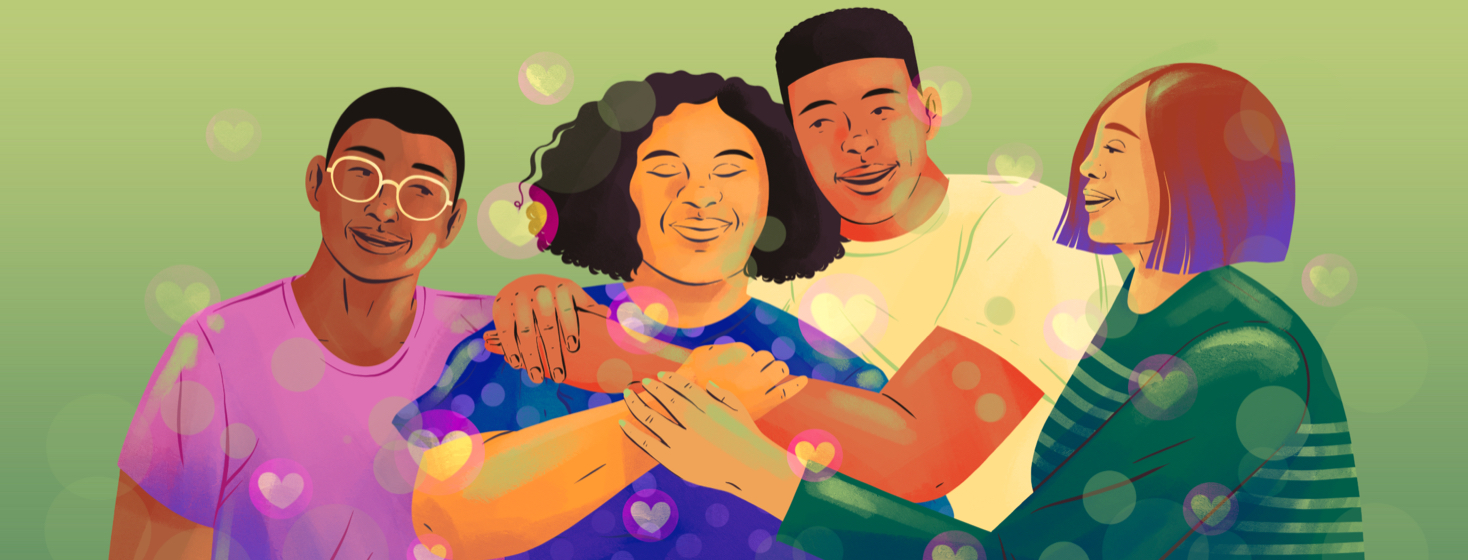Community Views: How Can People Support Us?
Receiving a cancer diagnosis is hard. All of a sudden, you have to shift your focus. Taking care of your health becomes the No. 1 priority if it was not before. The people around you may ask what they can do to help you. And you may not know what to tell them.
We asked members of the LungCancer.net Facebook community: “When experiencing lung cancer, what’s the best thing someone can do to help?” We heard from nearly 50 of you: currently in treatment, long-term survivors, current caregivers, former caregivers.
A special note for any doctors who are reading
Please remember your compassion. A patient who is stressed and in pain needs your patience and empathy. Treat them as an individual, not a “case.” What they are going through may be just another day at the office for you. But for them, it is life-changing.
“I was a caretaker. The most difficult thing I had to deal with was getting the doctors to prescribe enough pain meds to help my husband. He suffered unnecessarily. He died within a few weeks so what was the point of withholding pain meds and making him suffer????”
Be there for me as a friend
This was by far the thing we heard most. A lot of you felt that the most useful support you could have is a friend who:
- Shows up
- Gives sympathy
- Shares a positive attitude
“Be supportive, empathic, and helpful, make them laugh, and let them know you are there for them every step of the way.”“Be there! Send a card! Call! Especially if you are a friend!”“Prayers and positive support and encouragement.”“Tell them about your survival…16 years in remission! Never give up hope.”
Listen without judgment
Many people think you only get lung cancer if you smoke. That is simply not true. More to the point, how a person gets any cancer or disease is none of your business. Do not add to your friend’s burden by trying to figure out how they “deserve” their lung cancer.
Also, people with chronic illness have good days and bad days, just like anyone else. Cheer them on through the good and be patient through the bad.
“Do not judge for what they are going through.”“Don’t ask if they smoked. Don’t look at them like they are already dead.”“No matter what always let them know you will be there for them. Some people say that but leave. Let him or her know no matter what, if wants someone to be there, you are here. Through the good, bad, horrible, and nasty.”“Just understand. We can be crabby at times.”
Remember to meet me where I am
Some of us want to be left alone, and others want company. Everybody’s experience is different. If you do not know what your loved one wants or needs, ask them. Even if we cannot give you a specific answer, we appreciate that you ask.
“Depends on the individuals, but sometimes you can feel pretty isolated. Maybe a personal visit or not. Maybe text, IM, email. Again, depends on the individual.”“Help them with whatever they want to do most, and just be there.”“Let the person choose what they want and how they want to handle it.”“As they say, read the room for what fits the individual needs. I think this can even include sometimes realizing what can be helpful when even the person themselves does not exactly know.”
Give practical help
We have all been in this place: Too much to do, not enough energy or time to do it. If you can, offer the person with lung cancer a hand with the things they need to do anyway. And follow through!
“What not to do...Say if there's anything you need just let me know and then never call, stop, or message. What to do: stop, call, text, go for a walk, bring a meal or gas card, offer to ride along for tests, and, most of all, let them know you're there for them.”“Stay in touch; offer help. Sometimes you need to help even if they don't ask.”“Practical things my family and friends provided like housecleaning, doing laundry, and grocery shopping were so helpful. I didn't have the strength or stamina to do them for quite awhile after surgery and during chemo. I am ever grateful to them all.”
We are grateful for you!
Thank you to our community members for sharing your journey with us and each other. Knowing that others are going through a similar hardship can help us feel less alone when we’re down.
Do these ideas remind you of something someone did for you that was helpful? How have you reached out to others who were not doing well? Let us know in the comments. Seeing how you keep yourselves strong and how you cheer each other up may inspire someone else!

Join the conversation